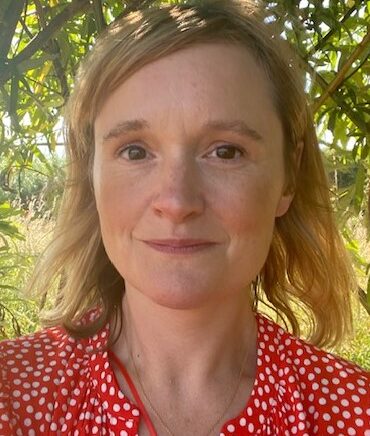Returning to research after an extended career break can be daunting. While the average length of a career break for a Daphne Jackson Fellow is seven years, many of our fellows return after a decade or more. Dr. Jocelyn Auger, a British Heart Foundation funded Fellow hosted at the University of Birmingham, is returning to cardiovascular research after fourteen years away.
Jocelyn chose to take a break from her successful research career after the birth of her first child.
“I hadn’t planned to take a career break, but my children suffered with minor medical conditions when young, requiring frequent hospital visits and care at home. My husband worked long, inflexible hours and I had no local extended family support, leaving me with no realistic options for childcare. I was afraid I’d never get back.”
With the encouragement of her former supervisor and other Daphne Jackson Fellows, Jocelyn contacted the Daphne Jackson Trust to explore a return to research after more than a decade-long career break.
They were supportive right from the start and my advisor is wonderful – if I’m ever unsure about anything, I just email her and she always gives me the answers and reassurance that I need. I found the writing of my fellowship proposal very hard and time-consuming after such a long career break and whilst also working, but it certainly fired up my brain and put me in a great frame of mind for returning to research.”
Jocelyn’s British Heart Foundation funded Fellowship: “Establishing a microfluidic model of thrombus and endothelial cell interaction under flow as a tool for application of novel imaging techniques,” is hosted in the Department of Cardiovascular Sciences, Birmingham Platelet Group at the University of Birmingham. Her project explores how to improve our understanding of the formation and treatment of blood clots.
Cardiovascular diseases are a major cause of death in the UK, accounting for approximately a quarter of all deaths. The long-term aim of my research is to inform clinical practice on the management of heart disease by determining the ideal combination of anti-thrombotic drugs to manage an individual’s condition.”
As a Fellow, Jocelyn is taking advantage of the retraining opportunities, attending Daphne Jackson training courses and several conferences. She also received a Birmingham University travel grant for a collaboration at the University of Maastricht.
I’m loving being back. Everyday feels a little like a highlight, I walk into the medical school and feel so fortunate to be there and be a part of research again. It’s a world away from my previous job. I feel like a different person this time around, although I had a big break the life experience is so valuable. I have a lot of catching up to do in the field but I feel stronger and more confident about asking for help and input.”
If you’re thinking about applying for a Fellowship, Jocelyn says:
Don’t wait as long as I did to contact the DJT. Make the first expression of interest and take each of the subsequent steps, one at a time.”
The British Heart Foundation are funding two new fellowships! Find out about these and other currently opportunities here.



